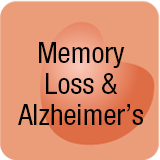Controversial Diagnosis: Alcohol Related Dementia
By Pamela D. Wilson, CSA, MS, BS/BA, CG
 The relationship between alcohol and a diagnosis of dementia remains somewhat a conundrum. While research has been ongoing, there remains a gap in conclusive data reporting that long term excessive alcohol use alone results in dementia. Long term excessive alcohol use has been proven to result in cardiac disorders, strokes, nutritional deficits, liver, and digestive diseases.
The relationship between alcohol and a diagnosis of dementia remains somewhat a conundrum. While research has been ongoing, there remains a gap in conclusive data reporting that long term excessive alcohol use alone results in dementia. Long term excessive alcohol use has been proven to result in cardiac disorders, strokes, nutritional deficits, liver, and digestive diseases.
Brain scans of individuals who participate in long term excessive alcohol consumption often confirm white matter loss in the frontal lobe of the brain making it difficult for the brain to evaluate and store information in memory. White matter supports brain function through communication between nerves. When no other cause for dementia can be identified, individuals with long term excessive alcohol consumption may be diagnosed with alcohol related dementia also called ARD.
What is known is that excessive alcohol use negatively affects the brain’s response to physical function and response time. Individuals with high blood alcohol content have difficulty walking a straight line or safely driving a vehicle. Speech becomes slurred and behaviors irregular. Blackouts occur resulting in an individual’s total loss of memory about a certain event or events.
Common with individuals diagnosed with dementia, individuals consuming excessive alcohol for long periods of time tend to become socially isolated and have diets that are nutritionally deficient. Individuals diagnosed with dementia simply forget to eat or become unable to operate microwaves or lose the cognitive ability to safely operate a stove. Individuals consuming alcohol commonly often lose weight due to poor nutrition and an inability to metabolize food. Many persons drinking alcohol also smoke.
Social isolation for individuals with dementia occurs in part because of the act of giving up driving due to concerns of driving and becoming lost—versus giving up driving due to concerns of alcohol intoxication and injury to others. This loss of transportation for persons diagnosed with dementia, unless other options are identified, results in social isolation related to an inability to attend group activities or the ease of accessing the car to visit friends or family.
Individuals diagnosed with dementia eventually lose the ability to hold congruent conversations, either forgetting portions of conversations or continually repeating information. This action results in challenges for friends who may not understand that their friend is experiencing memory loss. Friends simply lose patience, and refuse to remain in contact with the individual due to continual communication challenges and ongoing frustration related to the declining ability of their friend.
On the other hand the behaviors of a person continually consuming alcohol may become unattractive or exhausting for friends or family who continually view an individual with behaviors that seem out of control. Some persons who drink often exhibit angry or abusive behaviors towards others and isolation results.
Differences between regular dementia and alcohol related dementia exist. Research indicates that persons with alcohol related dementia usually do not demonstrate impairment with language where individuals with dementia struggle to “find words” for common objects and experience word salad where sentences fail to make sense. Other skills like visuospatial measures, for example the ability to draw a clock or copying information, and difficulties with memory and executive function are witnessed in individuals diagnosed with both types of dementia.
While individuals diagnosed with dementia are expected to advance in the disease and experience continued cognitive decline, there is some indication that abstinence from alcohol supports recovery of cognitive abilities. However, older drinkers are less likely to recover cognitive abilities and more males than females are diagnosed with alcohol related dementia.
Alcohol related dementia is an under-diagnosed and is an under-recognized problem in society. Much like the effects of long term use of recreational drugs remain an unknown, the long term effects of alcohol use only remains an unknown because many individuals also experience other chronic diseases. Like the recent recognition that head injuries result in cognitive damage (in spite of years of the football industry denying this fact), it may take years and research to confirm that alcohol or even recreational drugs poses a similar effect.
Pamela D. Wilson, MS, BS/BA, CG, CSA, Certified Senior Advisor specializes in working with family and professional caregivers to navigate healthcare and aging concerns. Wilson, an expert in the field of caregiving, has personally helped thousands of family and professional caregivers since 2000 in her career as an advocate, a care navigator, and an educator. Through her company, The Care Navigator, she is an advocate and service provider in the roles of guardian, power of attorney, care manager, and transition specialist. She was producer and host of The Caring Generation®, from 2009 to 2011, an educational radio program for caregivers on 630 KHOW-AM. In addition to her work at the Care Navigator, Pamela gives back to the community by serving as chairperson of the Community Ethics Committee in Denver, Colorado.
Her new book, The Caregiving Trap: Solutions for Life’s Unexpected Changes, is available through all major bookstores as well as on PamelaDWilson.com. You can follow Pamela on YouTube, Facebook, Twitter, and Linked In.
[/wlm_private_Family Caregiver Free]



